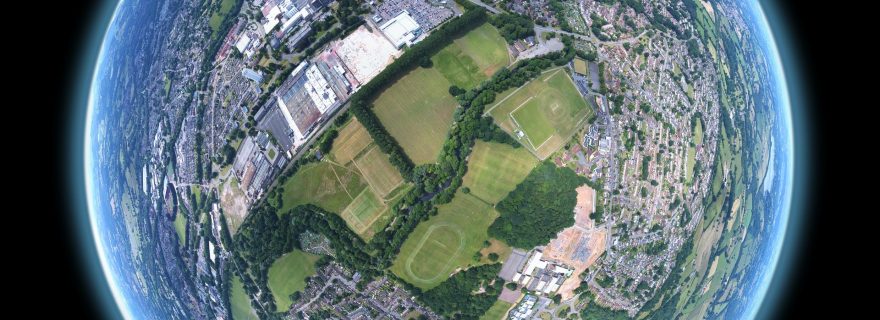SDG 18 – Sustainable space: Extending the SDGs beyond Earth
The UN SDGs are an urgent universal call for action to change the world and steer it towards a better and more sustainable path. One goal is missing: the 18th SDG on sustainable use of outer space.
What are the SDGs?
The Sustainable Development Goals (SDGs) were launched at the UN Conference on Sustainable Development in Rio de Janeiro in 2012 following decades of work by countries and the UN and were adopted by all UN Member States in 2015. They replaced the Millennium Development Goals, which started a global effort in 2000 to address poverty.
The UN Development Programme supports countries in implementing and achieving the SDGs through integrated solutions. Because of their global nature, achieving the SDGs requires the establishment of global partnerships, including governments, private actors, civil society, and citizens. Moreover, creativity, technology, and financial resources from all of society are necessary to achieve the SDGs.
The need for the 18th SDG
Planet Earth and the human race are strongly connected to each other. Sustainability of this planet is something that can be achieved from on Earth but also from outer space. Natural disasters and other phenomena that can lead to the extinction of the human race in the long term can be observed from outer space through satellites that provide essential information.
As public and private interest in the quest for exploration and use of outer space increases, the UN can spread awareness on issues that would protect humanity and the outer space ecosystem.
With the development of counter-space technologies and ‘space forces’ by several nations, a constant need exists for the protection of space against military use. Space, although infinite, is a scarce resource due to the limited availability of orbital space near Earth and in view of orbital congestion and space debris, there is a need for the protection and sustainability of space for future generations. Any set of SDGs without a focus on environmental impact would be incomplete. Formulating guidelines on environmental compliance reporting will go a long way to protect the outer space environment. A new SDG 18 could also address how data obtained about new celestial bodies in the process of commercial exploration is shared for the benefit of humanity.
Remote sensing satellites providing data for monitoring land use, soil, drought, crop development, water cycles, and other aspects of the natural environment, as well as the epidemiology of infectious diseases, are vital for addressing the problems incorporated in the SDGs on hunger, poverty, sanitation, energy, life on land and life below water. While the SDGs on quality education, decent work and economic growth, industry, innovation, and infrastructure, are addressed by telecommunication technologies enabled by satellite communication, the unique opportunities for partnerships and collaborations in space foster cooperation vital for ‘Peace, Justice and Strong Institutions’ (SDG 16). Therefore, it could be said that SDG 18 would not only be a sustainable development goal itself but also a catalyst for all the other 17 SDGs!
Initiating space as the 18th SDG
Placing space on the UN SDGs agenda has already seen several initiatives. In a joint report published by UNOOSA and the European GNSS Agency in January 2018, global cooperation and recognition of the ability of space to support the SDGs were recognised as a key for the success of the UN SDGs.
Additionally, The National Space Society, a US organisation for space advocacy, calls for ‘Recognizing the Imperative Role of Space in our Future’ as the 18th SDG. According to the NSS, the sustainable development of space economy must be recognised as a development goal that will include the principles of space exploration and utilisation, and the development of space communities.
Finally, a group of students from the Windesheim Honours College in Zwolle, the Netherlands, calls for the recognition of SDG 18: ‘Space for all’ by emphasising the responsibility of humanity for the bigger system beyond Earth. Their work introduces four pillars for that goal: respect and care for the community of life in our galaxy and universe; ecological wisdom and integrity towards biological systems in space; social and economic justice towards other planets and their resources; and global commitment to democracy, nonviolence, and peace towards potential new forms of life.
It is clear that space plays a crucial part in the achievement of the existing 17 SDGs. However, as the reliance on space to meet these goals is growing, space sustainability should be recognised as a goal in itself. As Stephen Hawking stated:
‘The long-term survival of the human race is at risk as long as it is confined to a single planet… but once we spread into space... our future should be safe.’


0 Comments
Add a comment